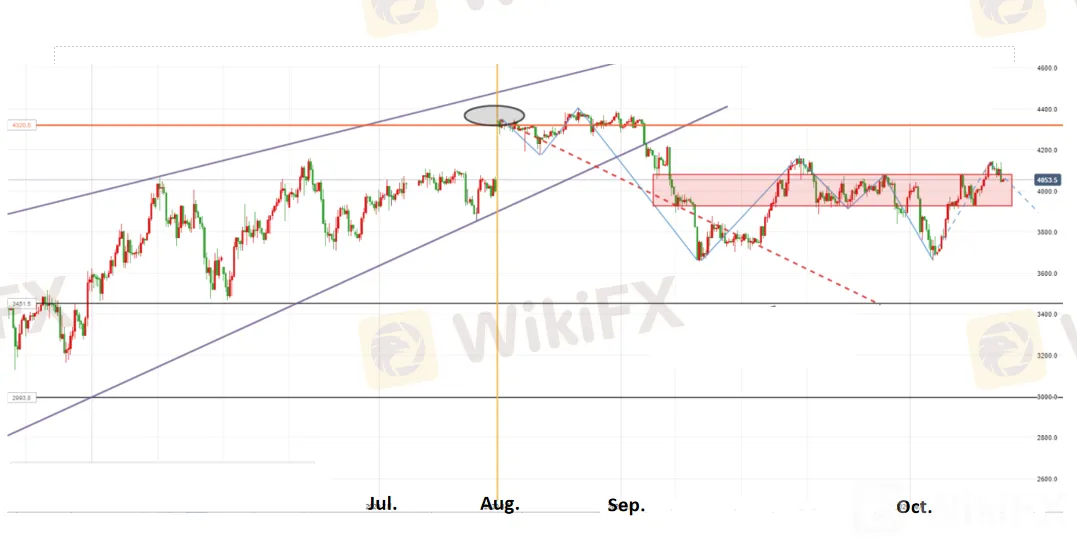简体中文
繁體中文
English
Pусский
日本語
ภาษาไทย
Tiếng Việt
Bahasa Indonesia
Español
हिन्दी
Filippiiniläinen
Français
Deutsch
Português
Türkçe
한국어
العربية
Rejection of Trump's Aid Bill & Pressure on WTI
摘要:Recently, Trump's 1.8 trillion stimulus bill was rejected again, dampening the risk sentiment soaring in the market.
WikiFX News (12 Oct.) - Recently, Trump's 1.8 trillion stimulus bill was rejected again, dampening the risk sentiment soaring in the market. Besides, the global oil demand can hardly recover in the short term amid the pandemic, which again presses WTI crude oil to accept a downtrend.
House Speaker Pelosi once again vetoed the 1.8 trillion stimulus bill offered by the Treasury Secretary Mnuchin because the proposal lacks “a strategic plan to contain the spread of the virus” and has inadequate aid funding. The market seems to be convinced that the two parties do not intend to reach any stimulus bill before the end of the election, which may dampen the lately soaring risk-on tilts.
Moreover, the second wave of the pandemic in Europe and the US has significantly impacted the demand for crude oil. Global oil demand may not recover until the end of 2023, according to the Federal Reserve Bank of Kansas City.
WTI is currently consolidating in a range with the above resistance lying at $ 41.30. Although oil prices are expected to challenge the $42.0 and $43.0 levels by a rebound in the near term, they are still hard to see a reversal in the downward momentum unless effectively breaking the resistance near the previous high of $44.0.
All the above is provided by WikiFX, a platform world-renowned for foreign exchange information. For details, please download the WikiFX App.

Chart: Trend of Oil Prices
免責聲明:
本文觀點僅代表作者個人觀點,不構成本平台的投資建議,本平台不對文章信息準確性、完整性和及時性作出任何保證,亦不對因使用或信賴文章信息引發的任何損失承擔責任
天眼交易商
熱點資訊
老牌券商Trade Nation值得信賴嗎?監管情形、交易環境、用戶評價、潛在風險一次看
SkyLine Guide 2025 Thailand正式啟動:評審團組建中
WB富格林疑似收割投資人?遭控點差暴利、強制平倉、出金卡關,話術不斷問題多
精英匯聚臺北,共築外匯新生態——WikiFX Elites Club臺北私享酒會圓滿成功
SEC Markets疑似無牌經營!高額贈金恐為非法吸金陷阱
外匯市場有哪些值得關注的指標?
加拿大CSA點名AlgoBitTrade無牌經營,投資人小心血本無歸
想要做好交易,必須懂得這些取捨
匯率計算


